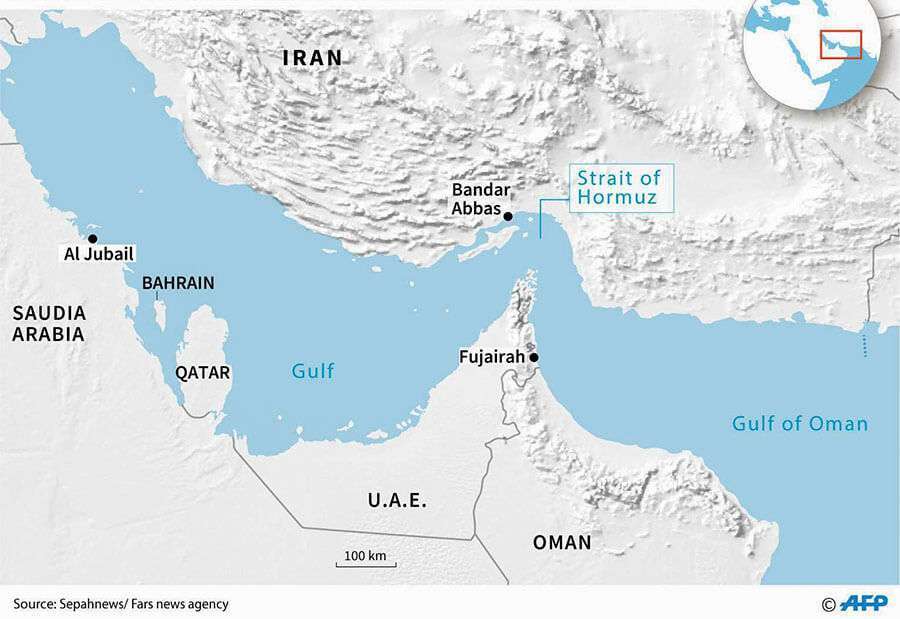The French aircraft carrier Charles de Gaulle docks in Abu Dhabi port

The French aircraft carrier Charles de Gaulle arrived in Abu Dhabi on Thursday as part of Operation Clemenceau 21, an international mission to combat the remnants of Daesh in Iraq, Syria and Libya. The campaign serves to reassert "freedom of navigation" in the waters of the region, which has been the target of Iranian threats, and to respond to regional conflicts from the Gulf to the Indian Ocean.
The vessel moored at the port of Mina Zayed, located in the UAE capital. Guillaume Pinget, the commanding officer, justified the stopover as a rest stop after 38 days at sea. The Charles de Gaulle is home to more than 1,000 crew, and stores 20 Rafale fighters, two E-2C Hawkeye early warning and control aircraft, two Dauphin SAR helicopters and an NH90 Cayman maritime helicopter. "40,000 tonnes of diplomacy", according to the French Embassy in the Emirates.
Operation Clemenceau 21 consists of a four-month deployment across the eastern Mediterranean, the Red Sea, the Indian Ocean and the Arabian Gulf. The objective is "the fight against terrorism, against Daesh", acknowledged Rear Admiral Marc Aussedat. "We are also deployed in strategic areas where French interests, European interests and the interests of allies are at stake," he added.
The 'Clemenceau 21' mission is part of a major international cooperation project. The Charles de Gaulle is accompanied by the Belgian Navy's frigate Leopold I, the Greek Navy's frigate Kanaris, a US Navy destroyer USS Porter and a Japanese destroyer JS Ariake, among other vessels.

Upon arrival in Abu Dhabi, the French navy conducted a combat drill against the Emirati army, pitting French Rafale aircraft against Emirati F-16s. Before its arrival in the Emirates, the expedition also carried out another war exercise in the Arabian Sea as part of the GASWEX (Group Arabian Sea Warfare Exercise), a simulation exercise aimed at improving military cooperation between partner states.
The Charles de Gaulle set sail on 21 February from the port of Toulon in southeastern France. The 'Clemenceau 21' mission comprises three phases: the first, in the eastern Mediterranean, aims to support NATO operations in the midst of friction between Greece and Turkey; the second, before crossing the Suez Canal, aims to establish a common front of cooperation against Daesh in Libya; the third and last, from the Gulf, to combat the jihadist threat and support the deployment of its European and American allies in the area in the face of Iranian attacks.
The aircraft carrier will take part in exercises with India and the United Arab Emirates from April before returning to the eastern Mediterranean. The deployment will end in June this year, but the overarching mission that encompasses all of France's military movements is 'Operation Chammal'. Launched by France in 2014, this undertaking seeks to eradicate Daesh in Iraq through airstrikes.

"We represent strength and stability. We are not here to send threatening messages or point fingers at anyone," stated Rear Admiral Aussedat. Senior navy officers are not authorised to comment on the geopolitical situation, but France is seeking to gain a military and diplomatic presence in the region through this operation. All in order to position itself as one of the main combatants of global jihadism.
In the region, both the US and Saudi Arabia have denounced continued attacks by Iran's Revolutionary Guard. The US military has accused Tehran of sending fast attack boats against US warships, while Israel has joined the accusations after several attacks on Israeli-owned vessels in the vicinity of the Gulf.
The latest cargo ship was attacked off Oman on its way to India. Alarm bells went off and all suspicions fell on the Iranians, but Tehran was quick to reject the accusations.
The security of the Gulf is the target of France and its allies. The region encompasses a number of world economic hotspots such as the Suez Canal, the Strait of Hormuz, and the Bab el-Mandeb. The French presence therefore strengthens the positions of its Western allies.








